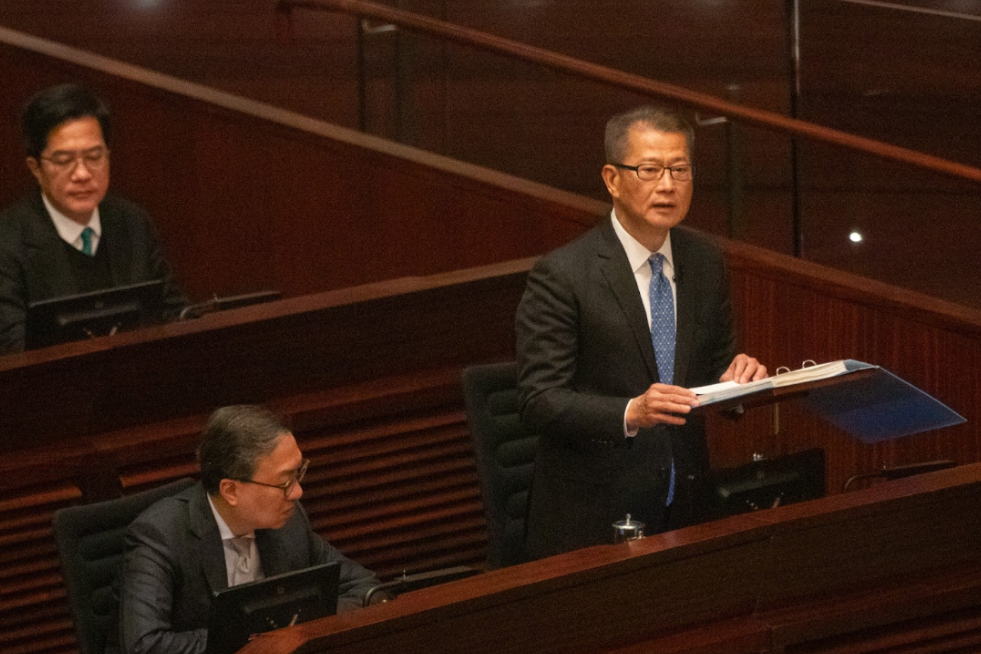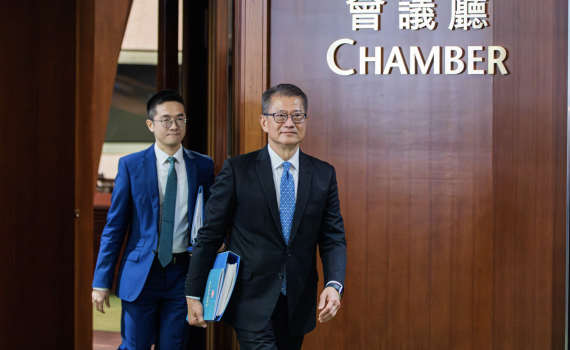The budget set aside HK$10 billion to establish an innovation and technology industry-oriented fund to channel investment toward the industries of the future.
It is part of Financial Secretary Paul Chan Mo-po's strategy to “put AI at the core of developing new quality productive forces.”
“The goal is to make Hong Kong an international exchange and cooperation centre for the artificial intelligence industry," Chan told the Legislative Council in his budget speech.

Another HK$1 billion will go toward establishing the Hong Kong Artificial Intelligence Research and Development Centre, which will come under a new Digital Policy Office that will focus on research and development.
“The Hong Kong Artificial Intelligence Research and Development Centre will contribute to the local AI ecology and provide jobs for Hong Kong AI talents if the plan can be implemented properly," said Wan Renjie, Professor of computer science at Hong Kong Baptist University who is familiar with the AI ecosystem in both Singapore and Hong Kong.
Artificial intelligence and data science are listed as one of the three emerging industrial development sectors in Hong Kong, according to the Hong Kong AI Development Research. The report indicates that 41% of Hong Kong enterprises are currently or plan to adopt AI, while 32% have already applied AI across multiple levels, such as marketing and operations.
“It is necessary to allocate part of the budget to invest in AI, though the Hong Kong government cannot predict when it will yield returns,” said Wan. “Once Hong Kong has nurtured an impressive, influential and independent AI enterprise, the return will be immeasurable,” he added.
Rodas Sun, 24, Chief Technology Officer of aiKnow, a start-up that focuses on providing business AI models to large-scale companies, said many start-ups now rely on government funding, but they are not truly developing AI products with practical significance.
Last year, the Innovation and Technology Commission launched a scheme to fund 100 research teams from eight universities to become successful start-ups, according to the government press release.
Wan said AI education is similar at universities in Hong Kong and other leading regions.
“What Hong Kong lacks is the soil to retain the local AI talents, as the lack of manufacturing is causing the shortage of jobs that affect the local brain drain,” he said.
In his budget speech, Chan said Hong Kong will host the first International Young Artificial Intelligence Scientists Forum to gather top industry talents and promote the research and industrial development of artificial intelligence technology.
"At present, what we need the most is the computing power support. We obtain our computing power from some big tech companies, such as Google. So far, our start-up hasn’t tried to engage with the government-provided supercomputing center, " said Sun.
The first phase of the Cyberport AI Supercomputing Center has just been put into operation. The Financial Secretary said the computing power will be gradually increased to 3,000 petaflops this year.
“The level of AI development in a region largely depends on the voice of the AI private enterprise on that soil," said Wan.
《The Young Reporter》
The Young Reporter (TYR) started as a newspaper in 1969. Today, it is published across multiple media platforms and updated constantly to bring the latest news and analyses to its readers.

Budget 2025: Improved financial connectivity to boost Hong Kong’s role as RMB trading hub

Budget 2025: Third medical school to be decided soon



Comments